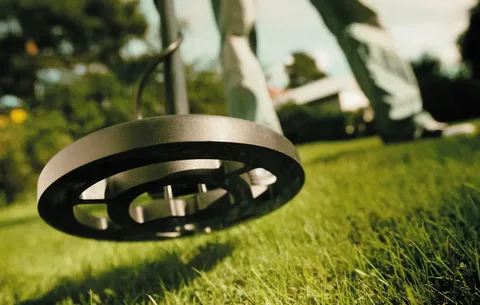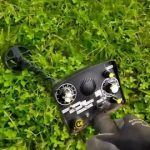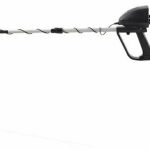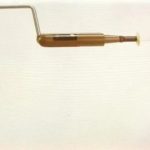Metal detectors have long been a fascination for hobbyists and treasure hunters. The thrill of uncovering hidden treasures buried beneath the earth’s surface has inspired many to invest in the best metal detectors. In this guide, we will explore the top metal detectors on the market, perfect for enthusiasts looking to pursue their hobby of hunting for metallic treasures. Whether you’re an experienced detectorist or a beginner, these metal detectors are sure to enhance your treasure hunting experience and help you uncover hidden gems.
Uncovering Hidden Treasures: The Best Metal Detectors for Your Hobby is a comprehensive guide to finding the perfect metal detector for your needs. The book covers a range of topics including the different types of metal detectors available, how to choose the right one for your specific interests and budget, and tips for getting the most out of your metal detecting hobby. Whether you’re a seasoned detectorist or just starting out, this book is a valuable resource for anyone interested in uncovering hidden treasures.
The Benefits of Using Metal Detectors for Security Purposes

Metal detectors are an effective tool for enhancing security in various environments, including airports, schools, events, and public spaces. They are able to quickly and accurately detect the presence of metal objects, such as weapons or other harmful items, helping to prevent potential threats and protect the safety of individuals.
By using metal detectors, security personnel are able to screen individuals and their belongings for concealed weapons or dangerous metal objects, helping to deter crime and ensure a secure environment. Additionally, metal detectors provide a non-invasive method of security screening, allowing for the efficient and discreet inspection of large numbers of people in public spaces.
Furthermore, the use of metal detectors can help to create a sense of security and peace of mind for individuals, as they provide a visible and tangible form of security measures. This can contribute to a positive overall experience for visitors and attendees, and can help to mitigate potential security concerns.
Overall, the benefits of using metal detectors for security purposes are clear: they provide an effective means of detecting and deterring potential threats, while also creating a secure and safe environment for all individuals involved.
Metal Detectors: A Useful Tool for Archaeological Discoveries

Metal detectors are an important tool for archaeological discoveries, as they allow researchers to locate and uncover ancient artifacts and structures buried underground. These devices work by detecting the presence of metal objects, such as coins, weapons, and jewelry, which can provide valuable information about past civilizations and cultures.
Archaeologists use metal detectors to survey and map ancient sites, assisting in the identification of potential excavation areas. This can save time and resources by pinpointing specific locations for further investigation. In some cases, metal detectors have led to significant discoveries, such as hoards of buried treasure or long-lost settlements.
While metal detectors are a valuable asset in archaeological research, it is important for users to follow ethical and legal guidelines when conducting surveys and excavations. This includes obtaining proper permits and permissions, as well as adhering to established conservation practices to preserve and protect the historical significance of any findings.
Overall, metal detectors have greatly contributed to our understanding of the past and continue to play a crucial role in uncovering and preserving ancient artifacts and structures.
How to Choose the Right Metal Detector for Your Needs

When choosing the right metal detector for your needs, consider the type of detecting you’ll be doing (e.g. relic hunting, gold prospecting, or beach hunting), the terrain you’ll be covering, and your level of experience. Look for models with features that match your specific needs, such as different search coils, ground balancing capabilities, and discrimination settings. Additionally, consider factors such as weight, battery life, and ease of use. Reading reviews and seeking advice from experienced users can also be helpful in making the right choice for your metal detecting needs.
The Evolution of Metal Detectors: From Early Model to Modern Technology

Metal detectors have come a long way since their early inception. Early models, such as the ones used in the late 19th and early 20th centuries, were large and cumbersome, making them difficult to use. They also lacked the sensitivity and accuracy of modern detectors.
The evolution of metal detectors has seen significant advancements in technology. The development of pulse induction and very low frequency (VLF) technologies has greatly improved the sensitivity and accuracy of metal detectors. These advancements have allowed for the detection of smaller and deeper metal objects, as well as improved discrimination between different types of metals.
In addition to technological advancements, modern metal detectors also feature ergonomic designs, lightweight materials, and advanced control systems that make them easier and more comfortable to use. Many models also come equipped with digital displays and advanced signal processing algorithms, further enhancing their performance and usability.
Overall, the evolution of metal detectors has led to the development of highly sophisticated and effective tools for a wide range of applications, including security screening, archaeological exploration, and recreational metal detecting. These advancements have significantly expanded the capabilities and potential uses of metal detectors in various fields.
Metal Detectors in Schools: Ensuring a Safe Learning Environment
Metal detectors in schools are a controversial topic, with some arguing that they are necessary to ensure a safe learning environment, while others believe they create a distrustful and unwelcoming atmosphere. Proponents of metal detectors argue that they can help prevent weapons from entering the school and deter students from bringing weapons on campus. However, opponents argue that metal detectors can create a sense of fear and stigmatize certain students, particularly those from marginalized communities. Additionally, there are concerns about the effectiveness of metal detectors in actually preventing violence. Despite the debate, some schools have chosen to implement metal detectors as part of their security measures in an effort to ensure the safety of students and staff.
The Role of Metal Detectors in Airport Security Screening
Metal detectors are a crucial part of airport security screening as they can effectively detect any metallic objects that may pose a threat to the safety of passengers and crew. These devices are able to detect the presence of weapons, explosives, and other dangerous items that individuals may seek to bring onto an aircraft. In addition to metal detectors, airports also use other advanced screening technologies such as body scanners and X-ray machines to further enhance security measures. The implementation of metal detectors as part of airport security screening helps to ensure the safety and security of air travel for all passengers and personnel.
Exploring the Underwater World with Waterproof Metal Detectors
Waterproof metal detectors are designed to be used in water, making them the ideal tool for exploring the underwater world. Whether hunting for lost treasure, conducting underwater archaeology, or simply enjoying a leisurely dive, these detectors provide the ability to locate and retrieve metal objects from beneath the surface. With advanced technology and durable construction, waterproof metal detectors have become a popular choice for underwater enthusiasts seeking to uncover the hidden secrets of the sea.
Metal Detectors: An Essential Tool for Finding Lost Objects
See also: gold monster minelab
Metal detectors are electronic devices used to detect the presence of metal objects in a given area. They are commonly used for security screenings at airports and other high-security areas, as well as for finding lost objects such as jewelry, coins, and other metallic items. Metal detectors work by emitting a magnetic field from a search coil that interacts with metal objects and produces a signal to alert the user of its presence. They are essential tools for treasure hunters, archaeologists, and hobbyists who enjoy searching for buried or hidden objects. There are various types of metal detectors available, including handheld, walk-through, and specialized underwater models, each with its own set of features and capabilities. Overall, metal detectors are a valuable tool for locating lost or hidden metal objects in a wide range of environments.
The Science Behind How Metal Detectors Work
Metal detectors work by utilizing the principles of electromagnetism. These devices contain a coil of wire that emits a magnetic field when an electric current is passed through it. When the magnetic field encounters a metal object, it induces an electric current in the metal, which in turn creates a magnetic field of its own.
This causes a disturbance in the original magnetic field emitted by the metal detector’s coil, which is then detected by the device. The detector’s electronics analyze this disturbance and produce an audible or visual signal to alert the user to the presence of metal.
Different types of metal detectors use variations of this basic principle, such as pulse induction or very low frequency technology, to achieve greater sensitivity and performance in different environments. The science behind metal detectors is also applied in various other fields, such as security screening, industrial metal detection, and archaeological exploration.
Metal Detectors: A Valuable Resource for Law Enforcement and Public Safety
Metal detectors are a valuable resource for law enforcement and public safety as they can help in detecting concealed weapons or dangerous metal objects in public places such as airports, schools, and government buildings. These devices work by emitting a magnetic field and then detecting disruptions in the field caused by metal objects. They are an important tool in maintaining security and ensuring the safety of the public by preventing potentially harmful incidents. Additionally, metal detectors are used in crime scene investigations to locate and recover crucial evidence such as bullets or knives. Overall, metal detectors play a crucial role in enhancing security measures and upholding public safety.












